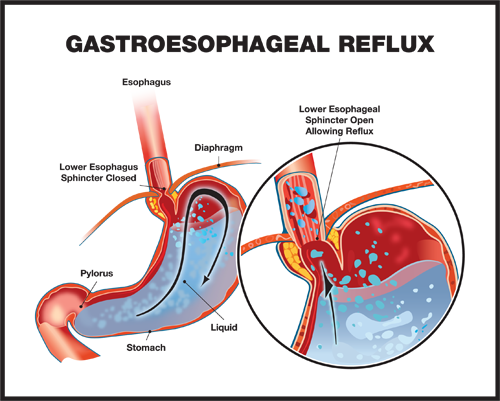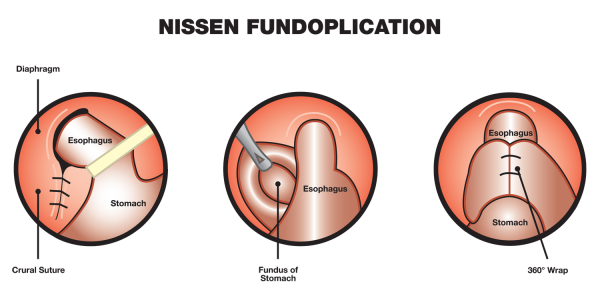GERD/Heartburn
What is GERD/Heartburn?
Chronic gastroesophageal reflux disease, also known as heartburn or GERD, is common medical problem affecting nearly 60% of the population. Common symptoms of chronic acid reflux include heartburn, chronic cough, asthma, sore throat, and even a change in voice as symptoms worsen.
What causes Gastroesophageal disease-GERD?
Gastroesophageal disease is most commonly caused by the movement of the junction of esophagus and stomach, lower esophageal sphincter – LES, into the chest. This is referred to as a hiatal hernia. Reflux can also be caused by relaxation of the lower esophageal sphincter, this is commonly due to things such as caffeine, smoking, peppermint, and spicy foods. Being pregnant or obese can also increase your symptoms of reflux.
What are the risks of GERD?
Chronic acid reflux can cause a variety complications that change the lining of the esophagus. This can be as simple as a stricture, which is a narrowing of the esophagus. By far the most worrisome complication of this chronic irritation is Barrett’s esophagus, which is considered a precancerous lesion.
What surgical options are available to treat GERD?
Surgical treatment for gastroesophageal reflux is reserved for patients who have inadequate response to medical therapy or who do not wish to take lifelong medication. The option of a partial wrap (Toupet) or full wrap (Nissen) are great surgical options that are patient specific. The procedure of choice is a Nissen Fundoplication, which is a 360 degree wrap of the stomach around the lower esophageal sphincter. This procedure also commonly includes reduction of the hiatal hernia and repair of the diaphragm as pictured below.



